[ad_1]
Britain’s new mild business car (LCV) market grows 11.1% to 52,916 items in greatest March efficiency for 3 years
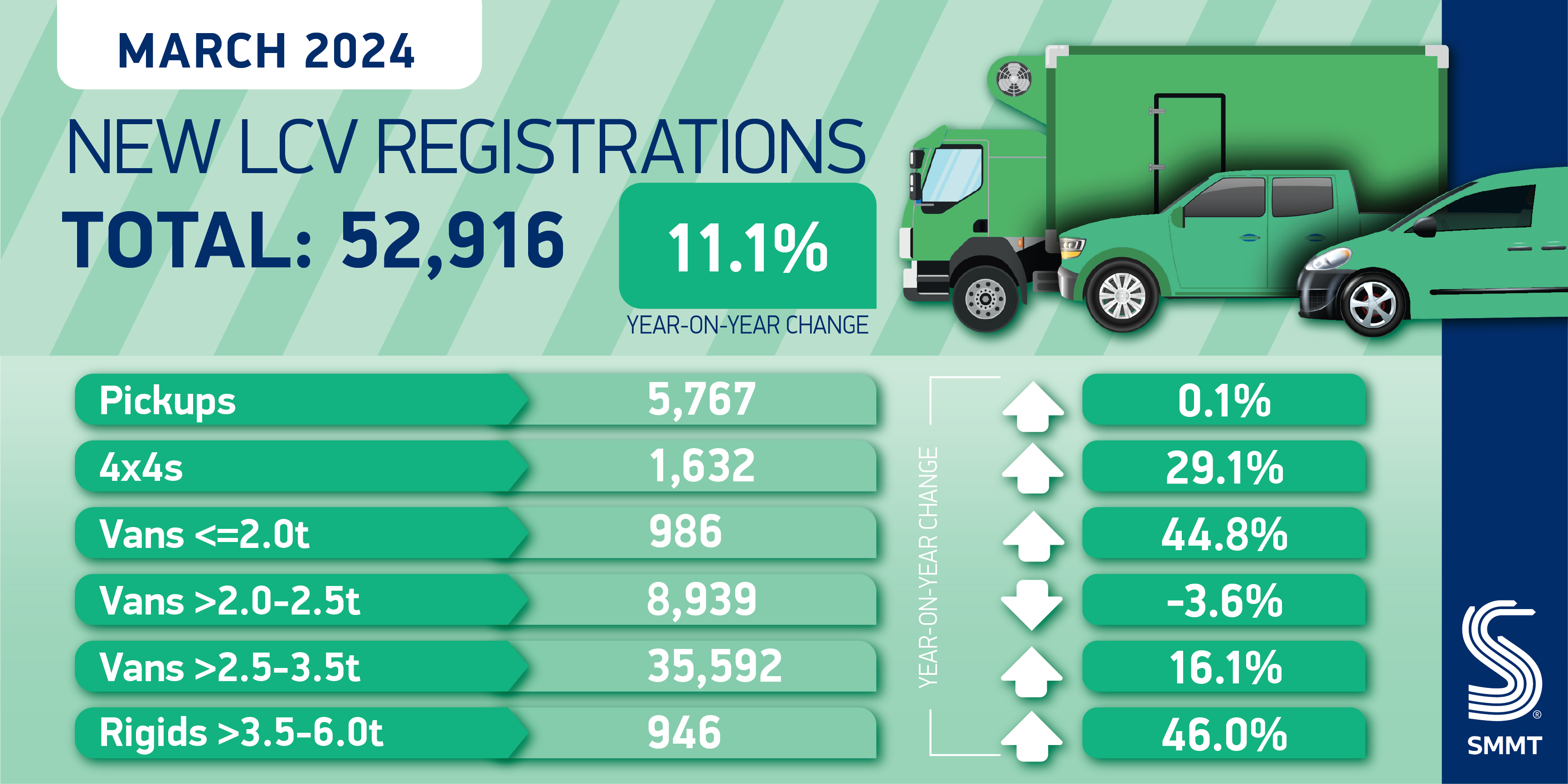
Greater than 50,000 new mild business autos (LCVs) joined UK roads in a bumper March for fleet renewal as extra companies upgraded to the very newest fashions than in every other month throughout the previous three years. 52,916 new vans, 4x4s and pickups have been registered, up 11.1% as Britons more and more rely upon vans for every part from on-line purchasing to native trades.1 Because of this, the van sector in 2024 delivered its greatest first quarter for 3 years,2 with volumes now simply -7.7% under Q1 2019.3
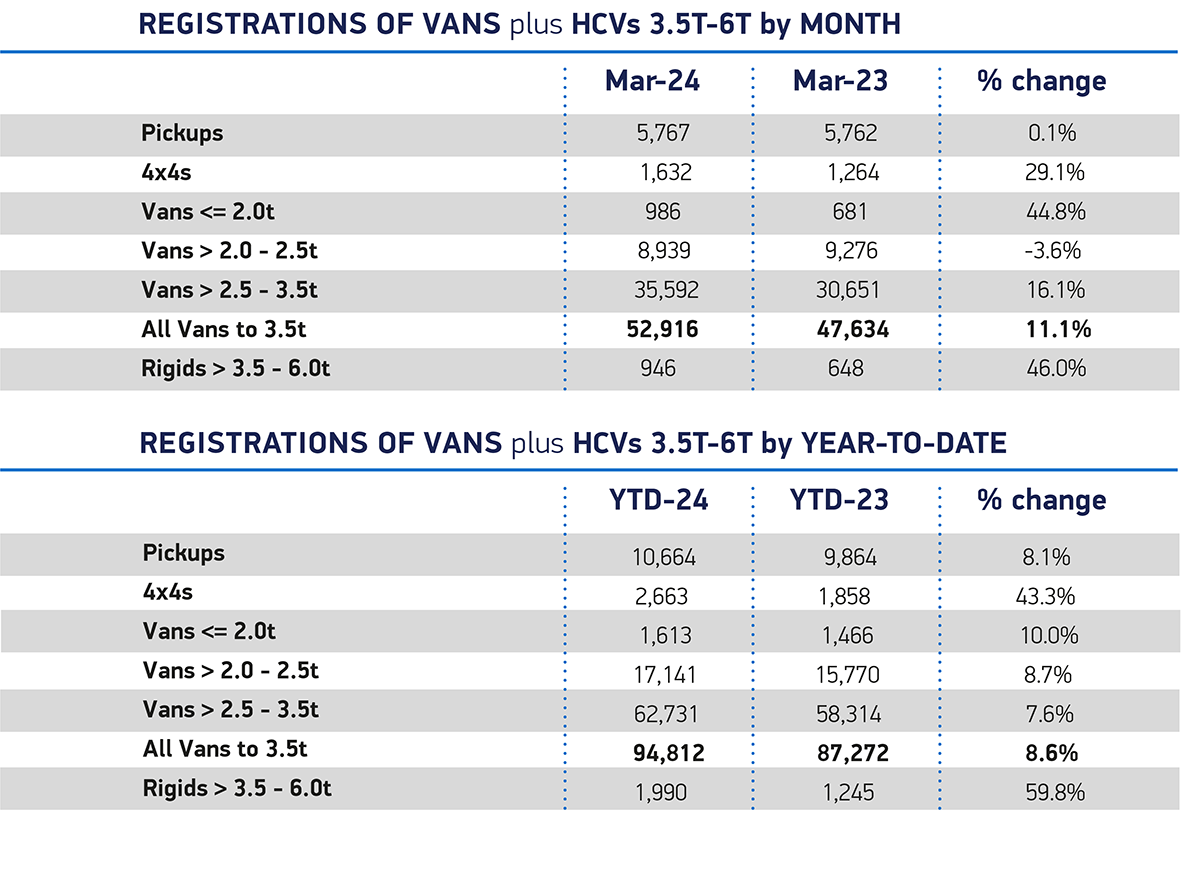
Registrations have been pushed by well-liked demand for the biggest fashions – these weighing greater than 2.5 tonnes to three.5 tonnes – up 16.1% to characterize greater than two thirds (67.3%) of the market. The largest proportion improve in uptake was of the smallest vans, up 44.8% to 986 items, whereas demand for medium-sized vans fell barely by -3.6% to eight,939 items. Decide-up volumes elevated to five,767, up 0.1% in contrast with a very sturdy month final 12 months, whereas demand for the newest 4x4s rose by 29.1% to 1,632 items.
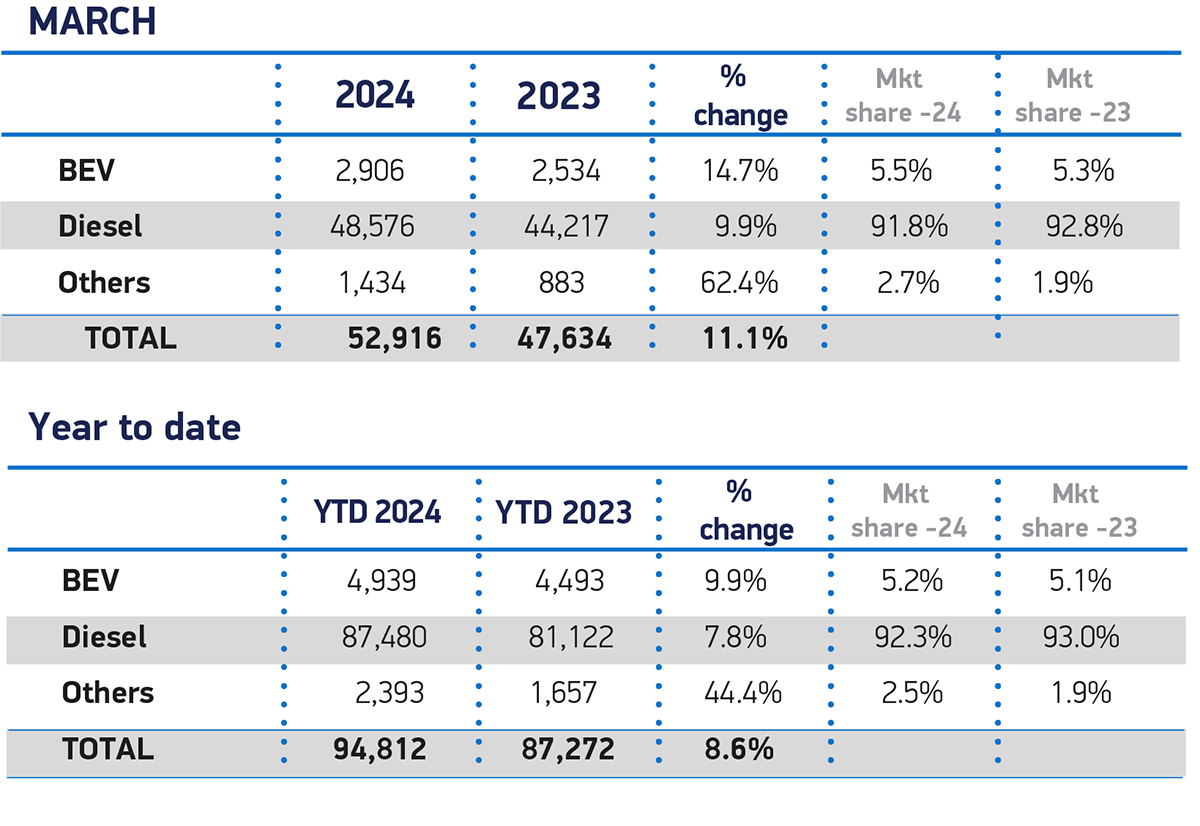
Extra fleets went inexperienced final month than in every other new numberplate month so far, with new battery electrical vans (BEVs) persevering with to rise, up 14.7% to 2,906 items.4 It means the very greenest vans represented 5.5% of the entire LCV market, however up solely barely from 5.3% in March final 12 months. With producers now mandated to realize more and more bold proportions of zero emission gross sales,5 pressing motion is required to enhance the boldness of operators – from giant fleets to small companies and the self-employed – to modify to the rising vary of BEV fashions on provide.
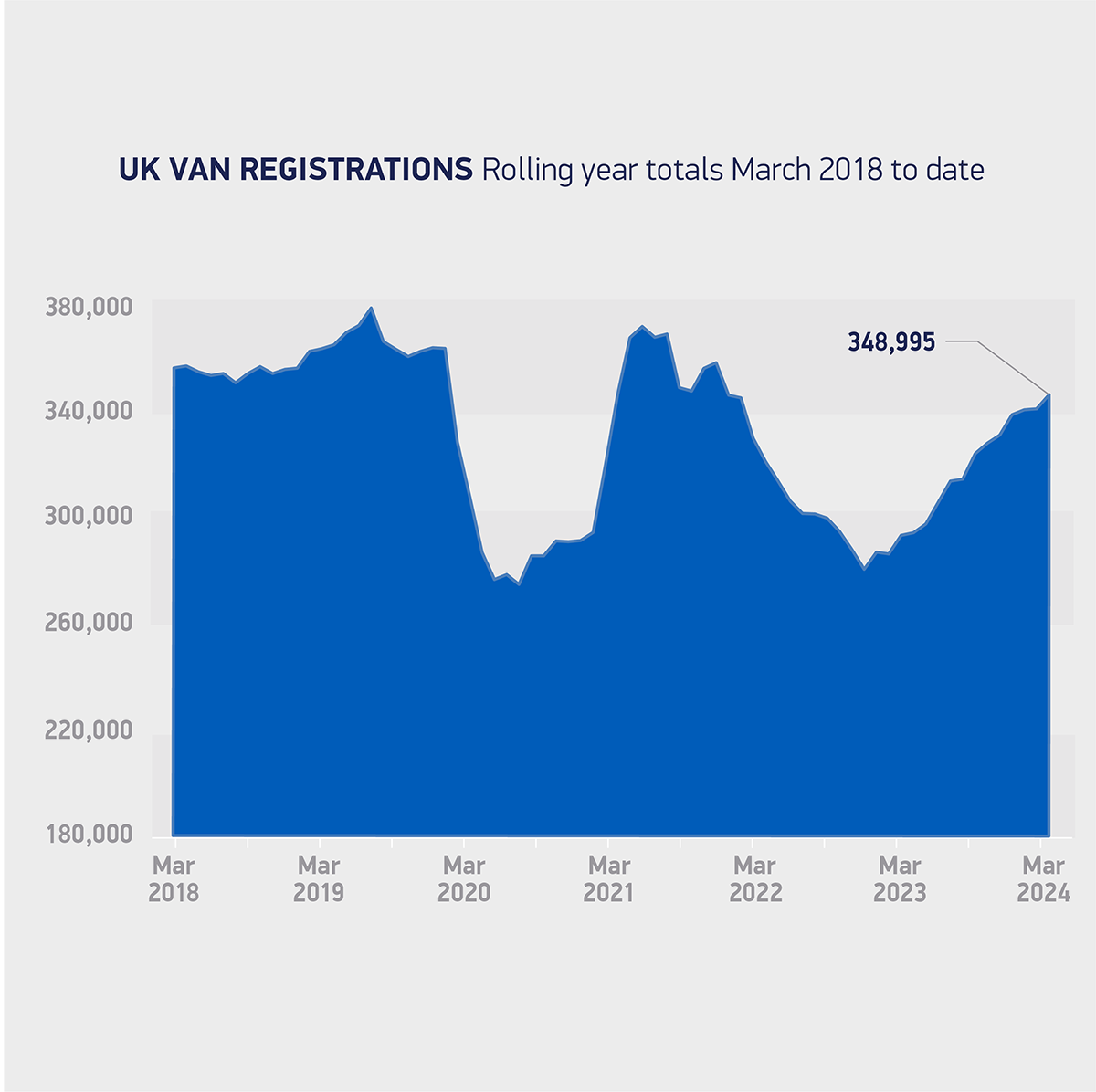
Sustaining present buy incentives is important, however pressing motion can also be wanted to deal with the considerations of some companies. This contains tackling charging anxiousness by ramping up van-suitable public infrastructure throughout the UK, from motorways to residential streets, in order that operators have full confidence to cost wherever and every time they want. On the identical time, with the price of VAT on public charging 4 instances greater than non-public or house charging, this disparity presents one other impediment for companies planning to transition to a web zero fleet, which is important if the UK’s world-leading web zero market is to be met.
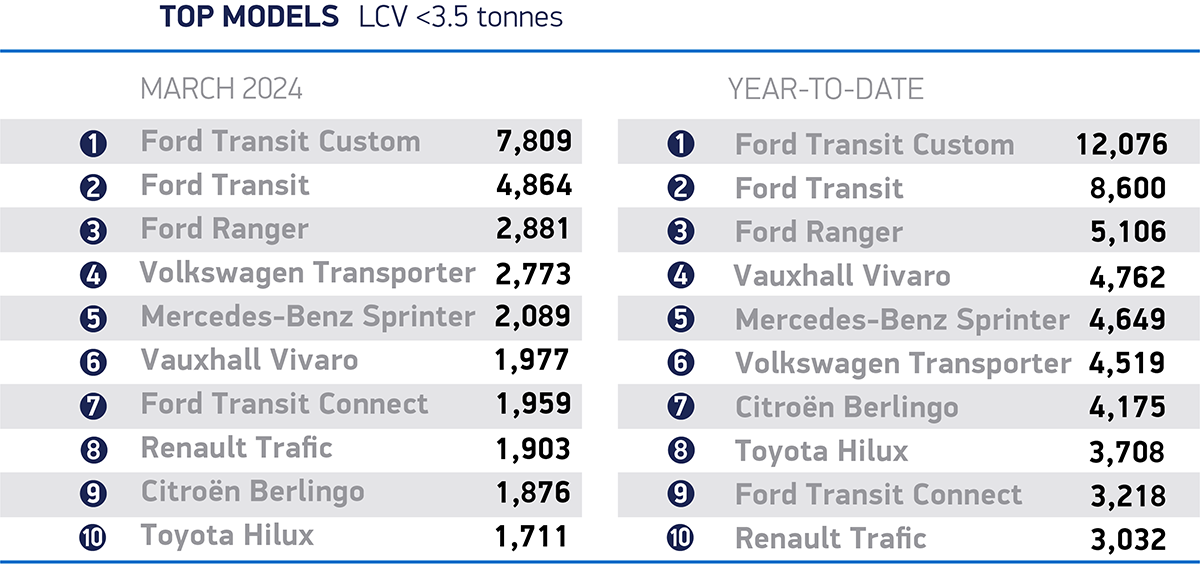
Mike Hawes, SMMT Chief Govt, stated,
A robust new plate month with the best variety of zero emission vans becoming a member of UK roads is a bellwether of the sector’s progress, chopping emissions whereas protecting British companies on the transfer. Trade is able to ship additional, however with inexperienced uptake nonetheless under mandated ranges, swift motion is required to provide new van patrons the boldness to go electrical. Fast supply of van-suitable public charging factors and eradicating the hurdle of taxation on their use are key to greener fleets and a greener future.
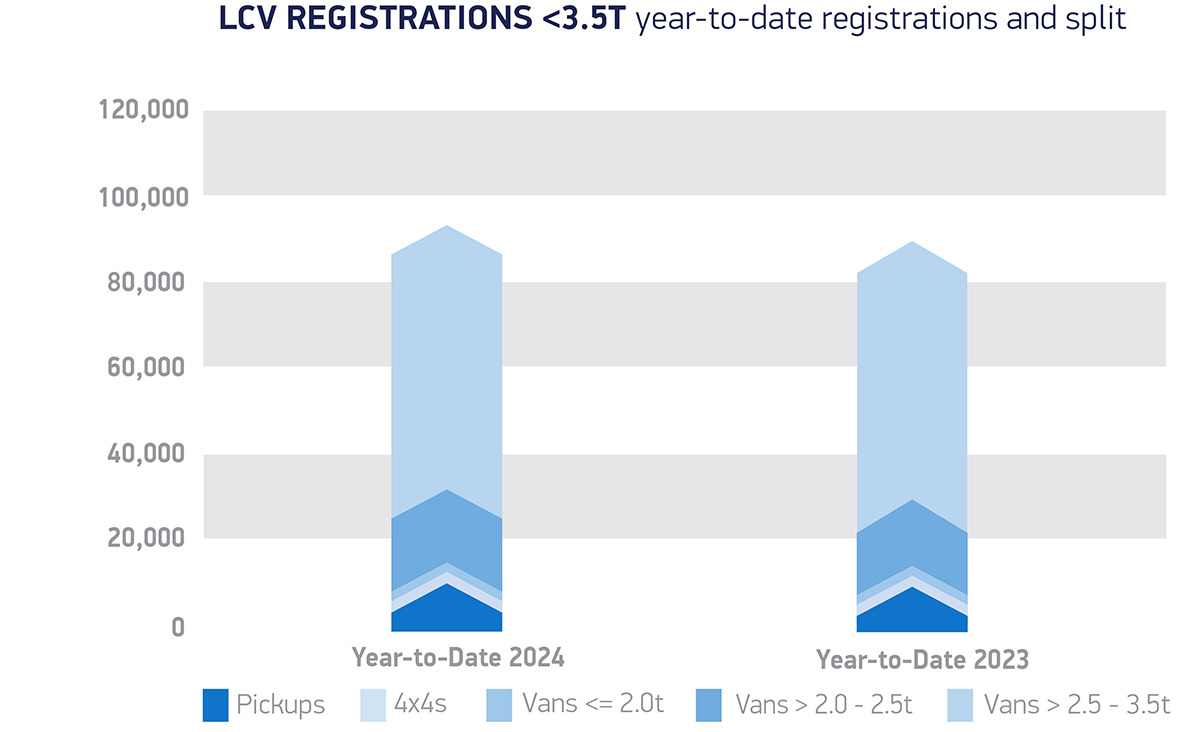
1 LCV registrations, March 2021: 56,122 items.
2 LCV registrations, Q1 2021: 97,356 items.
3 LCV registrations, Q1 2019: 102,743 items.
4 Solely December 2023, at 2,964 items, has had a better month-to-month BEV registration complete than March 2024.
5 The Zero Emission Car Mandate requires 10% of producers’ new LCV gross sales be zero emission in 2024.
SOURCE: SMMT
[ad_2]
